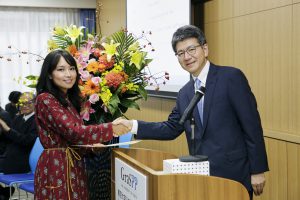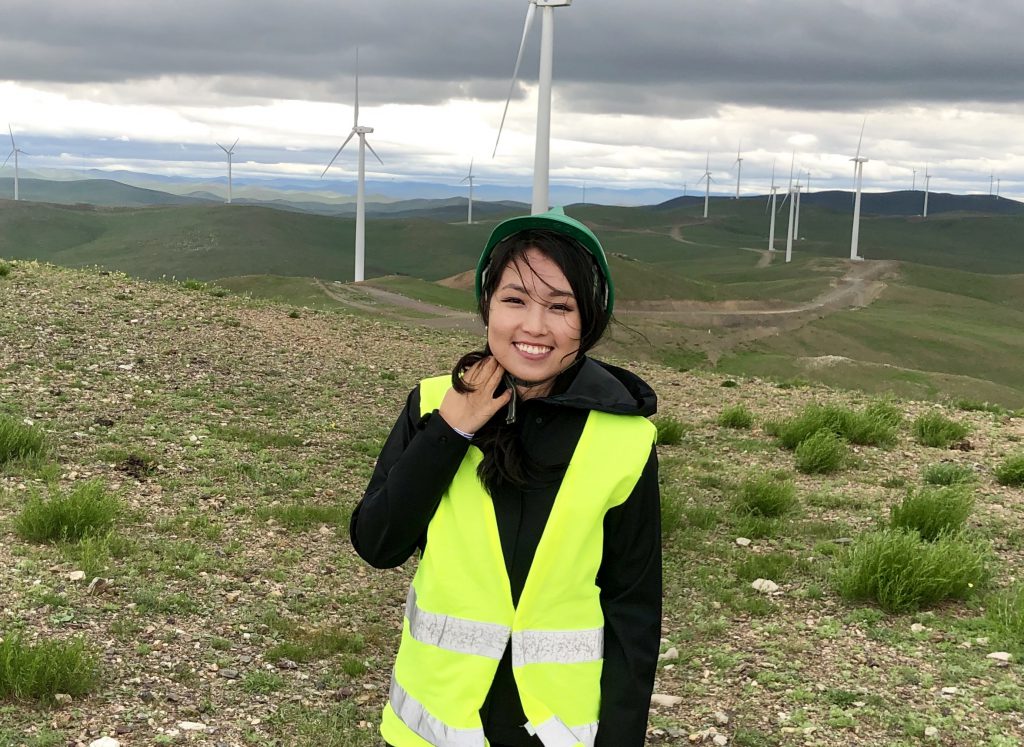It’s been exactly two years since I graduated from GraSPP with a master’s degree. When I look back at how I felt during graduation, I was proud of the fact that I completed the program and the knowledge I gained, and I was excited for the things to come. One thing I did not feel was fear – a fear from the unknown that future holds for me, perhaps because of my almost silly level of positivity, or better yet, maybe because I was confident that what I learned during my two years at GraSPP helped me grasp the complexity of the world that we live in.
The reason I wanted to learn public policy in the first place was due to the complex nature of how systems and policies work. After working in the public sector in Mongolia for four years, I was daunted by the fact that what I do as a public servant, and what we do as a Government as a whole, have tremendous impact on the wellbeing of our country, and for developed countries – the potential impact one Government’s policies can have on the global community. Yet the policy decisions we help make often comes with unexpected side effects that we did not anticipate because every decision not only affects the industry A, but it can also affect industry B and C as well. Realizing such interconnected nature of policies and industries shook my confidence as a public servant. How do I know that the policy recommendations I am writing will bear the fruits I am envisioning? How do I know that the work that I am doing will truly benefit my country? These questions of doubts led me to decide that I need to learn more about policies and how it affects different industries.
 During my time at GraSPP, I took range of courses that the program offered, trying my best to benefit from the world class institutional capacity that the University of Tokyo offered. My schedule consisted of classes in macroeconomics, political science, international relations, global health policy, energy security and so on. If looked by judgmental eyes, my interests may seem all over the place with no particular focus or specialization. However, as a proud generalist, I was determined to understand how the world of policy works – not just the economics and the numbers, but the international politics that affect the policies, the connection between geopolitics and energy security of a nation, how inclusive policies can support the health and wellbeing of our citizens, and what risks climate change pose globally. Reading and studying about such broad range of topics helped me better understand the complex system that previously intimidated me, and see the connections with clearer and more informed perspective. The lectures by the professors and faculty members were invigorating and the frank discussions I had with my diverse cohorts were eye opening.
During my time at GraSPP, I took range of courses that the program offered, trying my best to benefit from the world class institutional capacity that the University of Tokyo offered. My schedule consisted of classes in macroeconomics, political science, international relations, global health policy, energy security and so on. If looked by judgmental eyes, my interests may seem all over the place with no particular focus or specialization. However, as a proud generalist, I was determined to understand how the world of policy works – not just the economics and the numbers, but the international politics that affect the policies, the connection between geopolitics and energy security of a nation, how inclusive policies can support the health and wellbeing of our citizens, and what risks climate change pose globally. Reading and studying about such broad range of topics helped me better understand the complex system that previously intimidated me, and see the connections with clearer and more informed perspective. The lectures by the professors and faculty members were invigorating and the frank discussions I had with my diverse cohorts were eye opening.
I now work in the field of renewable energy, with the belief that Mongolia can say no to coal power plants (we have literally tons of coal) and become a regional player within the industry because we are not only rich in minerals but also rich in wind and solar resources. Although I lacked the industry specific experience or skillsets to promote renewable energy when I took on this path, I was well equipped with the knowledge about the energy industry and climate change that I gained during my time at GraSPP. I was also aware of how geopolitics and international political economy can affect individual country’s energy policy or endeavors against climate change, so the challenges I faced on the ground was not surprising or discouraging. If anything, knowing how complex systems work and the key policy issues of the energy industry as a whole made me more excited to tackle the challenges. The skills I gained from my graduate studies on how to obtain and analyze information and to think critically, as well as the connections I’ve built with GraSPP and the University of Tokyo which I sincerely believe can help answer any questions I may have in the future, makes me confident that I can overcome any challenges that may arise in my career. If gaining such confidence from two years of graduate school that will last a lifetime is not worth it, then I don’t know what is.
I understand that the incoming students will join GraSPP at an unprecedented time due to the COVID-19 pandemic – a challenge we are all facing as a global community. But to share my ever ending positivity during these hard times, I hope that you can understand the scale of socioeconomic challenges our world is now facing with the help of the talented faculty members, and gain the knowledge to help recover with more equal, inclusive, humane and sustainable policies. Every challenge is an opportunity to improve.
I wish you all good luck and good health.



